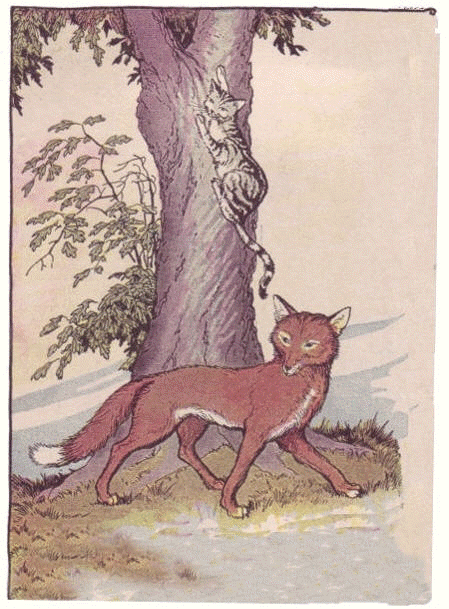How do we know what we know? Do we know what we are required
to know or we are just collecting useless information, which we may never use?
There is no doubt that the present generation is far more educated than ever
before, but that does not mean that they are also more knowledgeable than the previous
generations. We might have acquired lots of information and learned many tricks
in our schools and colleges, but that would have made us even dumber.
A fox was boasting to a cat of its clever devices
for escaping its enemies.
‘I have a whole bag of tricks,’ he said, ‘which
contains a hundred ways of escaping my enemies.’
‘I have only one,’ said the cat; ‘but I can
generally manage with that.’
Just at that moment they heard the cry of a pack of
hounds coming towards them, and the cat immediately scampered up a tree and hid
herself in the boughs.
‘This is my plan,’ said the cat. ‘What are you
going to do?’
The fox thought first of one way, then of another,
and while he was thus debating, the hounds came nearer and nearer, and at last,
the fox in his confusion was caught up by the hounds, and soon killed by the
huntsmen.
Most of us are like the fox, who know so many things but
when it comes to application of the knowledge, we fail miserably.
Albert Einstein has wisely said, “The only source of
knowledge is experience”. Just like you can’t know the taste of mango unless
you taste it, you can’t know the truthfulness of any information unless you use
it. Hence, the real knowledge is one that can be put to use and the knower has personal
experience of the same. We may call such
knowledge as ‘First Hand Knowledge”.
The second type of knowledge is “Second Hand Knowledge”,
which is the knowledge which we have never experienced but someone else claims
to have experimented it and shared the knowledge with others. You can never be
sure about the authenticity of such knowledge until you decide to use the
knowledge in your personal life and experience its truth. We are getting plenty of such knowledge from numerous
sources like friends, electronic media, social media and print media all the
time.
You may convert the second-hand knowledge to first-hand by
using it yourself in the real-life.
The problem with the modern world is that we have too much
of second-hand knowledge but little first-hand knowledge. We know so many things, which are not
authentic and yet believe them to be true without putting them to practise. People
can discuss and debate about them without ever practising them.
Hence, when a real-life situation comes, they can’t decide
the right course of action. Just like many people are suffering due to excess
of food, many more are suffering due to excess of knowledge. In the words of
Einstein again, “'A little knowledge is a dangerous thing. So is a lot.”
When our second-hand knowledge becomes far in excess of our
first-hand knowledge, we lose equilibrium of life and suffer due to non-application
or wrong application of knowledge.
Try to know only what is needed and useful o you rather than
wasting your time for accumulating knowledge for the heck of it, without knowing
what to do with it.

No comments:
Post a Comment